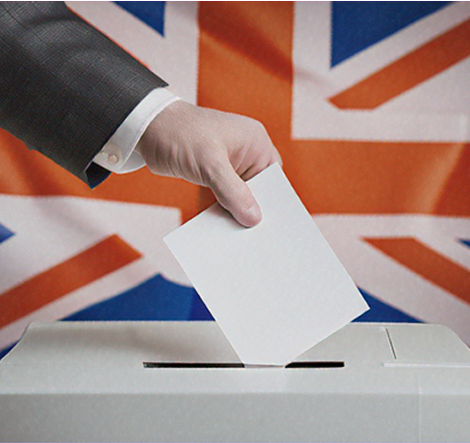If you're reading this, chances are you're fed up with how our governments are run. You're not alone—it's a feeling shared by millions across the UK and the Western world.
The bar chart shows distrust in those we elect is at crisis levels throughout most of the Western world, and nothing changes over time. This chart is not cherry-picked; it’s representative of the so-called western “democracies.”

Before we dive in, pause and ask yourself: If most of us don’t trust the parties we vote for, and we feel powerless to change things, are we really living in a true democracy?
At the VETO Campaign, we’ve pinpointed the main culprit behind this mess. It’s a big flaw baked into our voting systems that stops voters from being truly in charge. In systems like the UK’s First-Past-The-Post (FPTP), if there’s no candidate who really speaks for you—or if your favorite has no shot at winning—you’re stuck. You either skip voting altogether or cast a vote that feels pointless, like throwing it away.
This broken setup causes all sorts of issues. It creates a gap between politicians and the people they represent, letting powerful special interest groups (like big corporations or lobbyists) call the shots instead.
It amplifies extremeism, as elections are based on”lead, follow, or get-out-of-the-way” — what we call an “electoral oligarchy.” That’s not democracy; it’s a cheap knockoff that turns voters into fuel. Voters end up just feeding a machine that can spit out results nobody wanted. The system can ignore or silence even the majority of us, which is why trust is so low. It’s not about bad people—it’s about bad design.
Here’s our simple fix: Add a “VETO” box on every ballot. This lets you say, “None of these candidates work for me—let’s try again.” If more than half the voters choose VETO, the election gets rerun soon after (say, within a few months). In the meantime, candidates get the message loud and clear: They need to listen to what people really want and tweak their ideas to win real support. Suddenly, winning isn’t just about scraping by—it’s about earning the trust of most voters.
Is the fix too simple? Shouldn’t it be complicated and cost billions? Imagine what else can be fixed if we changed the base paradigm.
Politicians should only succeed if they truly represent our best interests, which is what representative democracy should be all about. The VETO bakes that into the system, making sure leaders actually work for us.
How the VETO Boosts the Greater Good for Everyone
Democracy isn’t perfect because voters are always right—it’s the best because we live with the results, so we’re motivated to make smart choices that benefit us all.
Most of us want similar things: better jobs, safer communities, fair opportunities. By giving voters real power and time to think, the VETO helps us steer toward decisions that serve the majority’s best interests.
Even if VETO doesn’t hit 50% in an election, it still packs a punch. If the VETO votes are bigger than the winner’s margin, then represenatives knows they have to govern to pull in those unhappy voters next time, or risk losing.
It keeps everyone accountable from day one. At its core, this reform bets on self-governance: That we, the people, can make things better when we’re in control. If that’s not true, well, we’re in trouble no matter what. But history shows that when people have a real say, good things happen.
We’ve kept this overview short, but our white paper on the website dives deeper—covering how it would work in practice, potential tweaks, and answers to common questions.
Join the VETO Campaign today and help build a democracy that actually delivers. Let’s put power back where it belongs—with you—and maximize the common good for all!

221 seats in the 2024 election were won with margins of less than 10%. Can you imagine the impact of the veto in that election? Do you think we would have the government we have now? Would we have ended up with something like the last Conservative government?
The Petition. PLEASE SIGN!

Adding a VETO option to ballots
A democratic electoral system requires consent, and the veto provides it.
NOTE: Petition approval is still pending, so there is nothing to sign yet. We will update once it’s up and running.



